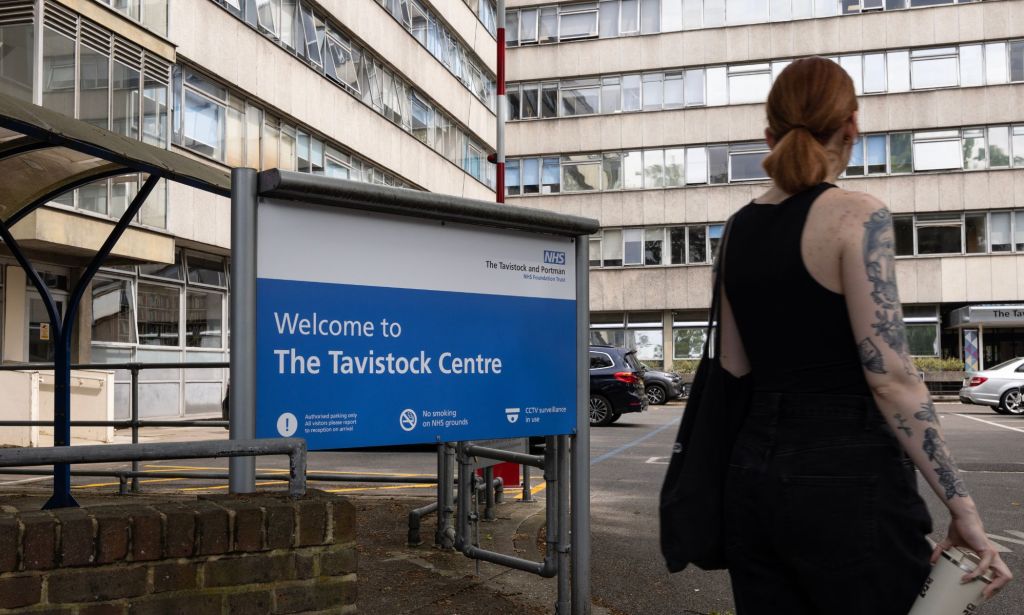Working group of trans experts – including clinicians – finds Cass Report ‘deeply flawed’

A working group has found issues with the Cass Report (Marcos del Mazo/LightRocket via Getty Images)
A group of clinicians and academics, with expertise in transgender healthcare, have labelled the Cass Report “deeply flawed”, saying it failed to fulfil its aims and should not be used for to forge policies.
The report, an independent, 400-page review into the provision of healthcare for trans youth in England, was published in April and made upwards of 32 recommendations to restructure the way in which transgender youngsters receive care.
NHS England commissioned paediatrician expert Dr Hilary Cass to head up the report in 2020 in response to the sharp rise in referrals to what was then England’s only youth gender clinic, at London’s Tavistock Centre, which has now closed down.
The report expanded on recommendations made in an interim report in 2022, which called for a decentralised approach to care in England, in the form of regional hubs.
It also claimed there was “weak evidence” to suggest that puberty-blocking hormones positively or negatively affected gender dysphoria, and deemed historical studies into their effects to be of “poor quality”. Cass also said the World Professional Association of Transgender Healthcare (WPATH) – an internationally recognised body for trans healthcare guidance – lacked “developmental rigour”.

Now, a working group of more than 20 clinicians and academics have produced a critical appraisal – the process of assessing the outcome of scientific research on its trustworthiness, value and relevance – entitled Critically Appraising the Cass Report: Methodological Flaws and Unsupported Claims.
The working group, led by Dr Chris Noone, an expert in LGBTQ+ health and care research, consists of specialists from various disciplines including psychology, sociology, biology, law, bioethics, psychiatry, neuroscience, sexual health, general practice, nursing, pharmacy and medical education, with expertise in evidence synthesis, evidence-based medicine and transgender health.
The group says the Cass’s “programme of research has significant methodological problems”, claims the “application of evidence-based medicine to gender-affirming care is deeply flawed” and that the report’s understanding of trans identities and experiences “deploys a paternalistic lens that disregards the competence of transgender young people”.
They go on to say: “Our critical analysis reveals significant methodological problems in the commissioned systematic reviews and primary research that undermine the validity of the Cass Report’s recommendations.
“In light of this, and the report’s poor understanding of transgender identities and experiences, it is vital that academics, healthcare practitioners, policymakers and the public, question the integrity and validity of the review’s recommendations.”
‘Selective and inconsistent use of evidence’
This is not the first time the report has been criticised by healthcare professionals.
In May, WPATH and the US Professional Association for Transgender Health published a statement accusing Cass officials of “intentionally and explicitly excluding any oversight from patients and their families and trans healthcare experts”, and claiming that the report’s “content is not supported by robust methodology”.
The statement also claims: “The Cass Review relies on selective and inconsistent use of evidence, and its recommendations often do not follow from the data presented in the systematic reviews.”
Furthermore, it “deprives young trans and gender-diverse people of the high-quality care they deserve and causes immense distress and harm to both young patients and their families”.
MPS have also questioned the decision to discount research into trans healthcare.
In March, Dawn Butler, now the Labour general election candidate for Brent East in London, asked then health secretary Victoria Atkins why “over 100 studies have not been in this Cass Report”.
Akins dismissed her concerns, saying that there are “certain campaigners who are trying to stir up a head of steam that this report is somehow flawed”.
Labour’s Nadia Whittome, currently seeking re-election in Nottingham East, also weighed in on the topic, writing on social media that her “thoughts are with the trans community”, following the publication of the report.
Young trans people, who already face “huge barriers to healthcare, including years-long waiting lists”, should not have their health and wellbeing become a “front in a toxic culture war”, she said.
“While some recommendations may positively impact the care young trans people receive, I know that others will cause significant concern. I’m also aware of concerns raised about aspects of the review’s methodology and therefore the basis upon which recommendations have been made,” Whittome added.
How did this story make you feel?

